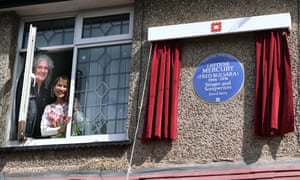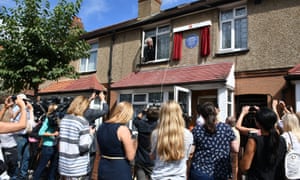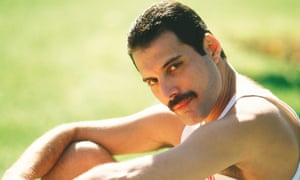Queen’s Brian May on Adam Lambert and story behind Bohemian Rhapsody
Ahead of their Hong Kong and China debuts, band’s guitarist and founding member talks about how Queen came to be, and the thinking behind bringing American Idol runner-up on board as lead singer
PUBLISHED : Wednesday, 14 September, 2016, 8:18am UPDATED : Thursday, 15 September, 2016, 3:53pm http://www.scmp.com/culture/music/article/2018950/queens-brian-may-adam-lambert-and-story-behind-bohemian-rhapsody

Over the course of their career, rock legends Queen have sold more than 150 million albums – one of them, Greatest Hits (1981), the biggest-selling album in UK history.
They have had 18 number-one albums and 18 number-one singles – several of them fixed in rock’s firmament, such as Bohemian Rhapsody, We Will Rock You and We Are the Champions.
And they’ve earned a reputation as the most incendiary live band in history, responsible for arguably the most memorable live performance ever when they upstaged the whole of musical royalty at 1985’s Live Aid.
But one thing they’ve never done is play in Hong Kong – a tiny gap in their accomplished CV that will finally be filled in on September 28, when they perform at AsiaWorld-Expo, Lantau, as part of an Asian tour that also includes Singapore, Taipei, Tokyo, Bangkok and Shanghai. That last gig will also be their first in China.
“It’s extraordinary that we never could make direct contact with China all these years, and we have fans there and we never really knew,” says the band’s guitarist, Brian May. “It wasn’t possible in the old days. We wanted to come, but I think culturally we were unacceptable at that time. It’s amazing that we can actually come now. At the age of 69, it’s just extraordinary.”
The band on stage at the AsiaWorld-Expo, of course, won’t be all of Queen; singer Freddie Mercury died in 1991, while bassist John Deacon retired in 1997, leaving guitarist Brian May and drummer Roger Taylor to carry the torch. It is particularly tough to have been robbed of one of rock’s greatest frontmen, whose astonishingly versatile voice, blistering charisma and warm, humorous personality made him one of the most compulsively watchable performers ever to take to a stage.
We wanted to come [to China], but I think culturally we were unacceptable at that time. It’s amazing that we can actually come now-BRIAN MAY
The daunting task of trying to fill his shoes falls to American singer Adam Lambert. May has said he wanted to get away from Queen after Mercury’s death; his decision to breathe new life into the band came only because he found a new singer in 2005. It wasn’t Lambert, though; it was Paul Rodgers, formerly of Free and Bad Company, of whom the band were already fans.
“I just bumped into Paul Rodgers, who I’ve known for a while, and I found myself playing with him at a show, just a one-off, playing [Free classic] All Right Now,” says May. “There was obviously good chemistry, we felt good about it, and then he and myself and the lady who was to be his wife were in the dressing room, and she said, ‘You guys really have something; all you need is a drummer.’ And I said, ‘Well, I think I know a drummer.’
“So very organically we started to do a couple of things. And then we just thought, well, is this Queen or not? Without Freddie it’s never the original Queen; of course it’s not. So, the question was: can me and Roger and this man who influenced us be Queen?”
May says the collaboration with Rodgers “went organically”. Following that, he wasn’t sure he wanted to “continue to try to be Queen without Freddie”, but then “out of the sky came this boy Adam Lambert”.
May and Taylor first performed with Lambert during the 2009 season finale ofAmerican Idol, in which he finished runner-up, and he started to perform with them regularly in 2011. While they weren’t looking for a singer, May says, Lambert’s performances of Queen songs on American Idol made them realise that his soaring, versatile voice and theatrical stage presence made him the ideal candidate.
“I must have had 1,000 people e-mailing me saying: you have to see this guy; he’s the guy you need to be singing for you. When it came to the final, I think immediately there was some chemistry and I remember thinking, ‘Hmm, this could work’.”

“A couple of years later we had the opportunity to play an awards show, and the response was just phenomenal. Soon we found ourselves playing in front of 400,000 people in eastern Europe; it was the first fully fledged Queen show for years.”
Tellingly, the band refers to itself as Queen + Adam Lambert, suggesting that no one is trying to replace Mercury. “The thing is, he’s not Freddie,” says May. “He doesn’t need to be. But he has an extraordinary instrument, and he’s a natural with crowds. He also has humility, which is nice, and that delightful kind of lightness which makes people warm to him, and it really fits so well with us because we’d spent those years with Freddie, who also had that lightness.”
I think the toughest part is finding the balance between making it my own and honouring the original recording
ADAM LAMBERT
Lambert says the challenge of filling a Mercury-shaped hole might have receded over time, but the eclecticism of Queen’s oeuvre remains as challenging as ever.
“I think the toughest part is finding the balance between making it my own and honouring the original recording. But I think over the years it has become much easier to do that because I think now the music is sort of in my body,” Lambert says.
Queen are perhaps the most eclectic mainstream rock band in history, taking in elements of opera, music hall, funk, folk, heavy metal, disco, prog rock, R&B, symphonic rock, Dixieland jazz, gospel and rockabilly. In addition to Mercury’s unique voice and presence, the British band (Mercury was born Farrokh Bulsara in Zanzibar and mostly raised in India, but was a British citizen throughout his life) are instantly recognisable for their tight vocal harmonies; their densely textured, multilayered, repeatedly overdubbed, wall-of-sound production; and of course May’s virtuoso orchestral guitar solos, played on the guitar he made himself in the early 1960s, known as the Red Special.
Queen formed in 1970 while they were students in London. May, then a physics student, has since completed his PhD and become a respected astrophysicist; he’s also a renowned animal rights activist and also an expert in stereoscopics, a sort of 19th-century experiment in 3D imaging, and will be meeting the Hong Kong company that produces stereoscopic views he designs for the first time when he plays in the city.
The band hit the big time with their third album, Sheer Heart Attack (1974), featuring debut hit single Killer Queen, and then went stellar with the follow-up, A Night at the Opera (1975), which included their biggest hit, Bohemian Rhapsody, a six-minute ballad/opera/hard rock opus that ripped up the rule book when it came to commercial pop, spent a record nine weeks at number one and pretty much invented the music video. It was Lambert’s startlingly ambitious choice to perform onAmerican Idol.
“Obviously that was such a big turning point for me,” he says. “I am glad I picked that one. Maybe if I hadn’t sung that song I might not be part of the band now.”

The album it appeared on, says May, “was life-changing for us. We were on the edge of disaster ’cause the whole operation was so much in debt. So if we hadn’t made that album, which was successful around the world, we probably wouldn’t be speaking at the moment. And artistically it was great because we finally had the freedom that we needed to get in there and do anything we wanted. We had full use of studios, state-of-the-art equipment and enough time to experiment very deeply with both music and the technical side.
“I think all these ideas which had been lurking in our brains but didn’t come out suddenly were able to come out. It was a period of high activity, high hopes and inspiration; it was a very good time, becoming ourselves.”
Not that there weren’t creative clashes. Each member wrote songs and contributed to each other’s songs, creating tensions about whose songs made the grade, and who was credited for writing them. The solution, says May, was the band’s eventual decision to all take joint credit for every song.
“It was a constantly evolving relationship. We were trying to paint on the same canvas and we really had very different ideas as to what the finished canvas should look like. Most groups split up after a while, usually because of the writing situation. Somebody in the band feels like they are not represented. When you bring a song into a group situation in the studio it’s like your baby. You care passionately about it. If that baby doesn’t get to grow up and be something in the world you feel frustrated. So we had to learn to accommodate each other and make sure there was room for somebody else to breathe.
“You get the situation where everybody will work very hard on somebody’s baby and then they get no credit on it. Eventually we thought: let’s change this. What we did was we share the authorship of everything, so no matter who brought the baby in, it would be everybody’s baby.”
This article appeared in the South China Morning Post print edition as:
Queen for a day




